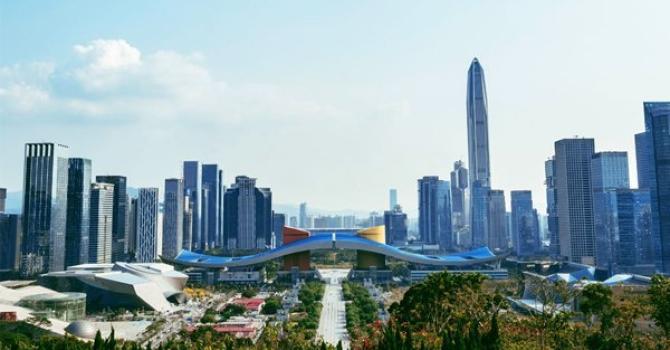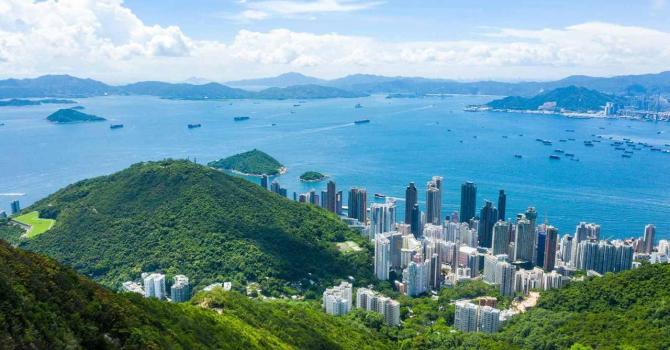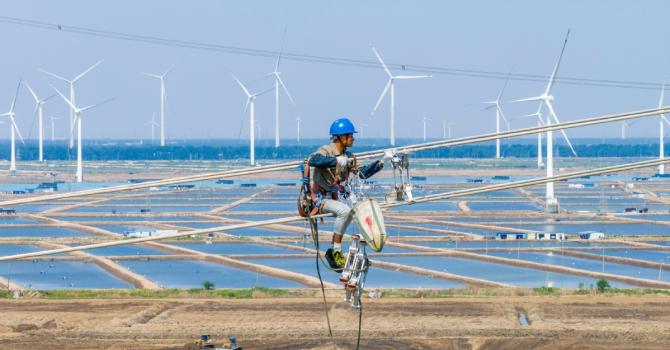HK must catch up on green finance to reclaim position as leading financial hub
Hong Kong’s Global Financial Leaders’ Investment Summit, attended by global leaders in finance, occurred last week just after the city’s latest Policy Address and the 20th National Congress of the Communist Party of China. The key message of the chief executive, John Lee Ka-chiu, to the international visitors during the summit was “Hong Kong is back”.
ee’s Policy Address was obviously directed at both the local and international audience. He declared the obvious — Hong Kong should fully and faithfully implement the “one country, two systems” governance principle, given that it has withstood some of the most rigorous challenges in recent years. This statement is not new, but it is a pillar principle for the special administrative region that is worth repeating because Hong Kong’s operational mechanism is based on it.
Dovetailing with national strategies, repeated during the Party Congress, it will help Hong Kong to achieve two main goals. One is to leverage the advantages of the nation’s decision to create opportunities for Hong Kong. The other is to reinforce Hong Kong’s uniqueness that enables a high degree of day-to-day autonomy to decide its own policies.
The point is, aligning Hong Kong’s development plans with the national ones will not turn it into “just another Chinese city”, as some Western media have flippantly alleged, but will enhance its capabilities to play a much bigger role nationally and globally. This was also a part of the subtext to the global financial audience.
However, there is a blind spot. Lee still sees Hong Kong’s role as just an international financial center through an outdated lens. He has yet to take advantage of the global momentum toward the green agenda and hook the city’s financial services to it decidedly.
Worldwide, green development has become a consensus for growth, including on the Chinese mainland. While Lee touched on green finance in his Policy Address, he has yet to see its transformative power to facilitate socioeconomic advancement.
Perhaps this will change, considering the 20th Party Congress, the financial summit, and also COP27 — the annual multilateral meetings on climate change — that began on Nov 6 in Egypt — where China is an influential member.
With more and more countries announcing carbon neutrality goals to be achieved by the middle of this century, enormous demands for green investment are being created. Our research shows the financing scale for green bonds and credit products will be approximately 1.5 trillion yuan ($206.5 billion) by 2025 for the Guangdong-Hong Kong-Macao Greater Bay Area alone.
The green-finance needs for China as a whole and for the Asia-Pacific region are much bigger. Hong Kong is poised to take on a more-prominent role if it sets the right policies and framework to be a major player. Green finance was one of the key topics of the financial summit.
Hong Kong’s Green and Sustainable Cross-Agency Steering Group, jointly established by several governmental departments in 2020, has begun to lay a foundation for green finance, and there is much to do because Hong Kong is a latecomer.
In the latest Global Financial Centres Index (No 32), Singapore ranks in third place and has overtaken Hong Kong, in the fourth position. In the most recent Global Green Finance Index (No 9), Hong Kong ranks only 39th, well behind Singapore (16th) and Tokyo (25th).
London still tops the Global Green Finance Index. The British government issued its first sovereign green bonds in 2021 and launched a series of new initiatives focused on sustainability.
The Singapore government has continuously updated its green trade finance and working capital framework in recent years, such as launching the Singapore Green Bond Framework in June 2022 that showed its intent to occupy the green finance space.
Even Amsterdam (in second place) ranks well above Hong Kong in the Global Green Finance Index. While Tokyo is not considered to have done too much, its ranking in the Global Green Finance Index is much better than Hong Kong’s.
Of course, rankings are not the only reference to judge Hong Kong’s performance in green finance. But Lee should ask the financial secretary to reflect on our low ranking in green finance and to understand why. Our research shows a lack of coherence.
Hong Kong is an ideal bridge between the Chinese mainland and the outside world in the green transformation, but it seems not to have grasped the opportunity. Indeed, the Policy Address missed the fact that China’s development path is tied to the nation’s green and low-carbon agenda in every sector of activity.
What Hong Kong can’t yet see is that everything in the built environment, shipping, aviation and logistics, industrial production, energy, water, waste and food are part of the greening transformation, and part of green finance.
Hong Kong can be the center for capital-raising for other markets. It can also use itself to be a demonstration hub for urban technologies and services to expand local capabilities. Lee should seek the views of the many professionals and businesses that have activities not just in the city but also on the mainland and overseas to inform him of what regulations, rules, standards and codes Hong Kong needs to upgrade.
All aspects of urban operation in Hong Kong must perform at a much more advanced state through activating the use of digital and other technologies and innovation. The government should aim to transform the city to be smart, low-carbon and environmentally sound, as well as people’s-health-centered.
It’s the financing of such projects that produces the best type of green finance, and from there, the innovation and technology arising from them can capture large markets on the mainland and overseas.
This is a good time for the ambitious new SAR administration to reflect on the many “green” opportunities that it can exploit and take Hong Kong to a new level of economic development and international prominence.
Coco Du is a research assistant professor at the Innovation, Policy and Entrepreneurship Thrust of Hong Kong University of Science and Technology (Guangzhou).
Christine Loh is chief development strategist at the Institute for the Environment at the Hong Kong University of Science and Technology.
The views do not necessarily reflect those of China Daily.
The article is published on China Daily - https://www.chinadailyhk.com/article/299355



